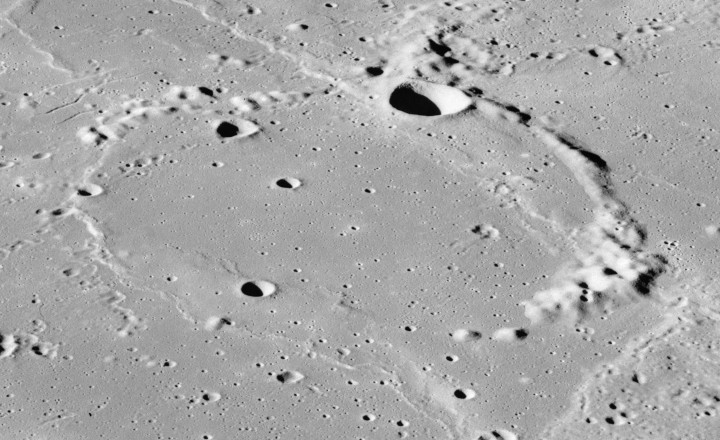Opelt (crater) on:
[Wikipedia]
[Google]
[Amazon]
Opelt is the  The crater was named after the German astronomers
The crater was named after the German astronomers
Opelt at The Moon Wiki
*{{Commonscat-inline Impact craters on the Moon
lava
Lava is molten or partially molten rock (magma) that has been expelled from the interior of a terrestrial planet (such as Earth) or a moon onto its surface. Lava may be erupted at a volcano or through a fracture in the crust, on land or un ...
-flooded remnant of a lunar
Lunar most commonly means "of or relating to the Moon".
Lunar may also refer to:
Arts and entertainment
* ''Lunar'' (series), a series of video games
* "Lunar" (song), by David Guetta
* "Lunar", a song by Priestess from the 2009 album ''Prior t ...
impact crater on the Mare Nubium. It lies to the north of a similar formation named Gould
Gould may refer to:
People
* Gould (name), a surname
Places United States
* Gould, Arkansas, a city
* Gould, Colorado, an unincorporated community
* Gould, Ohio, an unincorporated community
* Gould, Oklahoma, a town
* Gould, West Virginia, a ...
and to the northeast of the prominent Bullialdus.
 The crater was named after the German astronomers
The crater was named after the German astronomers Friedrich Wilhelm Opelt Friedrich Wilhelm Opelt (9 June 1794 – 22 September 1863) was a musicologist, a mathematician, and an astronomer. At one point, he held the title of Geheimrat (the title of the highest advising officials at the Imperial, royal or principal courts ...
and his son Otto Moritz Opelt.
Only a slightly raised outline remains of Opelt's rim, the interior having been inundated with lava. The rim has a wide break at the northern end and several smaller breaks to the south and southeast. The satellite crater Opelt E lies at the southern end of the surviving western rim. The interior floor is nearly level, with the exception of a slight rise to the southwest, which is continuous with a wrinkle ridge
A wrinkle ridge is a type of feature commonly found on lunar maria, or basalt plains. These features are low, sinuous ridges formed on the mare surface that can extend for up to several hundred kilometers. Wrinkle ridges are tectonic features cr ...
to the south.
To the north of Opelt on the lunar mare is a sinuous system of rilles designated Rimae Opelt. These occupy a diameter of about 70 kilometers.
Satellite craters
By convention these features are identified on lunar maps by placing the letter on the side of the crater midpoint that is closest to Opelt.References
* * * * * * * * * * *External links
Opelt at The Moon Wiki
*{{Commonscat-inline Impact craters on the Moon